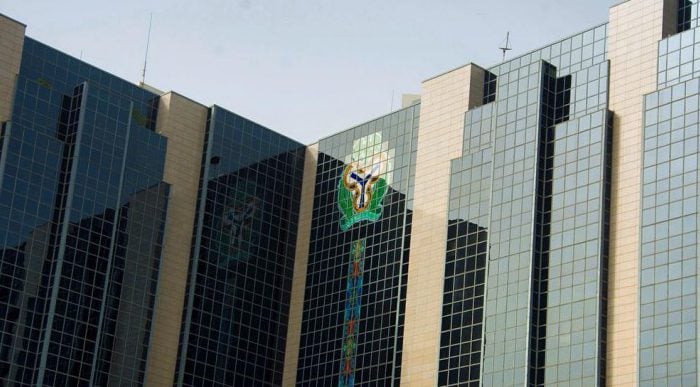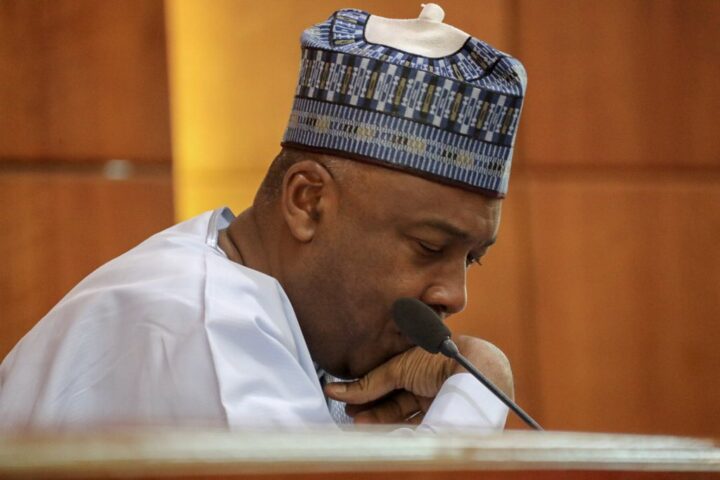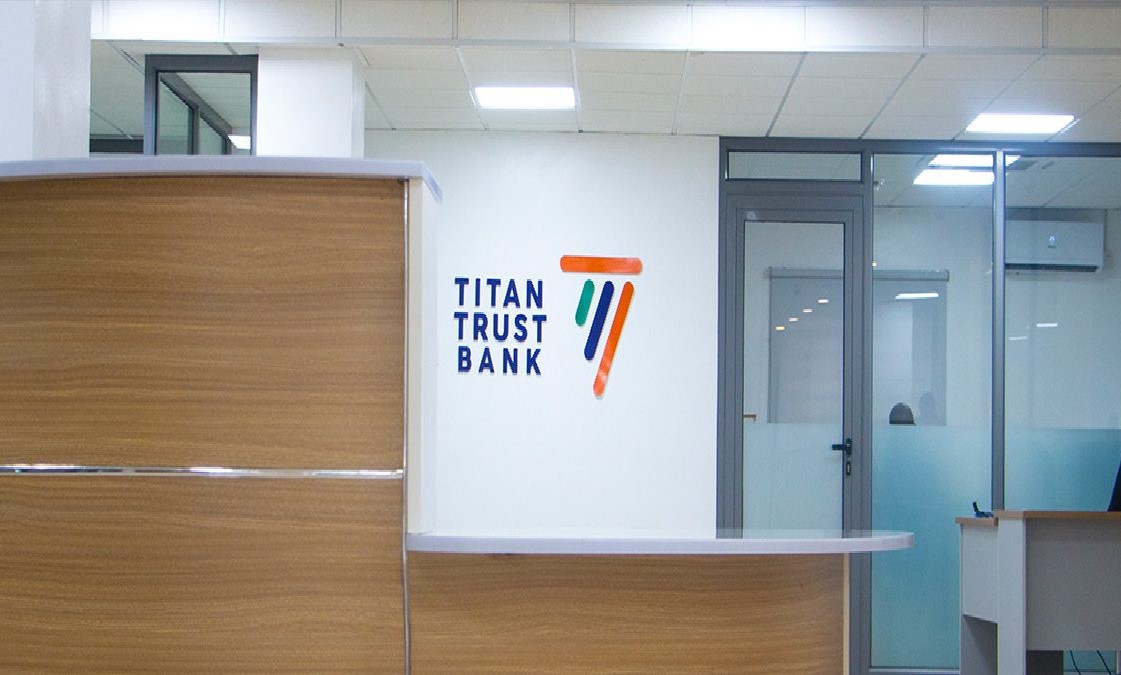Unlike any other year, 2023 witnessed a whirlwind of policy changes by the federal government through the Central Bank of Nigeria (CBN).
The impact of the monetary policy reviews — described by some global observers as ‘bold’ — reverberated through every segment of the economy, including households and businesses.
From the unification of the foreign exchange (FX) windows to the naira redesign policy, 2023 would remain etched in the hearts of Nigerians as a period marked by economic pain due to the CBN’s policy strategy to revive a dying economy.
TheCable looks at the most impactful CBN policies that shook the economy in the year.
Advertisement
NAIRA REDESIGN POLICY
The naira redesign policy was a major highlight of the year. It was announced on October 26, 2022, by Godwin Emefiele, the former CBN governor. The policy entailed the redesign of the high-valued currency notes: N200, N500, and N1000.
The authorities said the goal was to control money supply and support security agencies in tackling illicit financial flows. On November 23, 2022, former President Muhammadu Buhari unveiled the new notes.
Advertisement
Following the unveiling — a development that essentially kicked off the policy’s implementation — Nigerians were directed to deposit the old notes in their banks before January 31, 2023, when they would cease to be legal tender.
As days began to count towards the deadline, chaos suddenly engulfed Nigeria — a country that had been quietly coping with an already bad economy. Pockets of violence erupted across the nation. Citizens, overwhelmed by the attendant cash scarcity, damaged some banks’ facilities while others were burnt.
The unsavoury events elicited criticisms from the government, the private sector, and several civil society groups (CSOs), leading to a short extension of the deadline to February 10, 2023, after an ex-parte order by the supreme court.
After several attempts to bring relief to Nigerians, the supreme court, in another ruling in March 2023, said the old N200, N500, and N1000 notes should remain legal tender until December 31. This successfully doused tensions as commercial banks resumed the dispensing of old currency notes.
Advertisement
On November 14, 2023, the financial regulator (under a new government) further extended the deadline, declaring that the old naira notes will remain legal tender beyond December 31, 2023 — and no longer have a deadline.
Validating the change, the apex court ruled that the old and new notes should co-exist until further notice, allowing the CBN to direct banks to accept and issue both the old and redesigned naira notes indefinitely.
A LIBERALISED FX MARKET
As part of a series of policies to ensure economic recovery, the CBN in June 2023, announced the unification of all segments of the forex exchange (FX) market into the investors & exporters (I&E) window.
Advertisement
The FX market liberalisation policy saw the devaluation of the naira as the willing buyer, willing seller model was introduced.
Since the development, the FX market has continued to witness high levels of volatility, resulting in a further widening of the gap between the parallel and official rates.
Advertisement
The policy also worsened inflation evidenced by the skyrocketing prices of goods and services across the country.
Meanwhile, the apex bank’s policy followed a declaration by Tinubu that the “monetary policy needs thorough house cleaning. The Central Bank must work towards a unified exchange rate”.
Advertisement
Other significant reforms have since been implemented in the financial sector, including the removal of restrictions on inflows into domiciliary accounts.
FX BAN ON 43 ITEMS LIFTED
Advertisement
Meanwhile, amid the high levels of volatility experienced in the FX market following the unification policy, the CBN announced the lifting of the ban on 43 items previously restricted from accessing forex.
The regulator said the decision was part of efforts to boost liquidity in the foreign exchange market.
In 2015, the bank had restricted some items from accessing FX. The restriction was placed to reduce FX demand for products that could be locally produced.
According to the CBN, the forex restriction placed on cement, rice, tomatoes, and 40 other products, had pushed the demand for FX to the parallel market, causing a hike in the black market exchange rates.
Some of the 43 items are; rice, cement, margarine, palm kernel/palm oil products/vegetable oils, meat and processed meat products, vegetables and processed vegetable products, poultry chicken, eggs, turkey, clothes, Indian incense, tinned fish in sauce (geisha)/sardines, toothpicks, galvanised steel sheets, roofing sheets, wheelbarrows, head pans, among others.
CASH WITHDRAWAL LIMITS
In addition, on August 1, 2023, the apex bank exempted microfinance banks (MFBs) and primary mortgage banks (PMBs) from paying processing fees for withdrawals above the cash withdrawal limits.
The gesture had come months after the CBN initiated the cash withdrawal limits policy – which commenced on January 9, 2023.
In December 2022, the CBN directed deposit money banks (DMBs) and other financial institutions (OFIs) to ensure that over-the-counter cash withdrawals by individuals and corporate entities per week do not exceed N100,000 and N500,000, respectively.
However, following a public outburst, the bank increased the maximum weekly limit for cash withdrawals across all channels by individuals and corporate organisations to N500,000 and N5 million, respectively.
The apex bank said in compelling circumstances where cash withdrawals above the specified limit are required for legitimate purposes, a processing fee of 3 percent and 5 percent will be charged for individual and corporate organisations, respectively.
According to the CBN, the aim was to boost the cashless policy and reduce the amount of cash outside the banking system.
CONTACTLESS PAYMENT
Also, to encourage the adoption of cashless transactions, the regulator pegged daily transaction limits to N50,000 for contactless payments in June 2023.
The CBN said the policy became necessary due to the high potential of risks.
The financial regulator said transactions above N50,000 would require verification.
“Following the issuance of the guidelines on contactless payments in Nigeria and cognisance of the risks associated with contactless payments, the bank, hereby, defines transaction limits above which verification and authorization are required,” CBN had said.
“Transaction limits for contactless payments through accounts/wallets in Nigeria shall be as follows: transaction limit 15,000, daily cumulative limit N50,000.”
SOCIAL MEDIA HANDLES FOR KYC
In June this year, commercial banks were further directed by the apex bank to collect and verify social media handles as part of their know-your-customer (KYC) procedures.
The apex bank issued the directive in its gazetted legislation, titled, ‘Customer Due Diligence Regulations 2023’.
According to the CBN, the objective of the regulation was to prevent financial crimes and terrorism while boosting the precision and thoroughness of customer identification.
The regulator also said financial institutions would be required to identify their customers, regardless of whether they are permanent or occasional clients.
Add a comment






